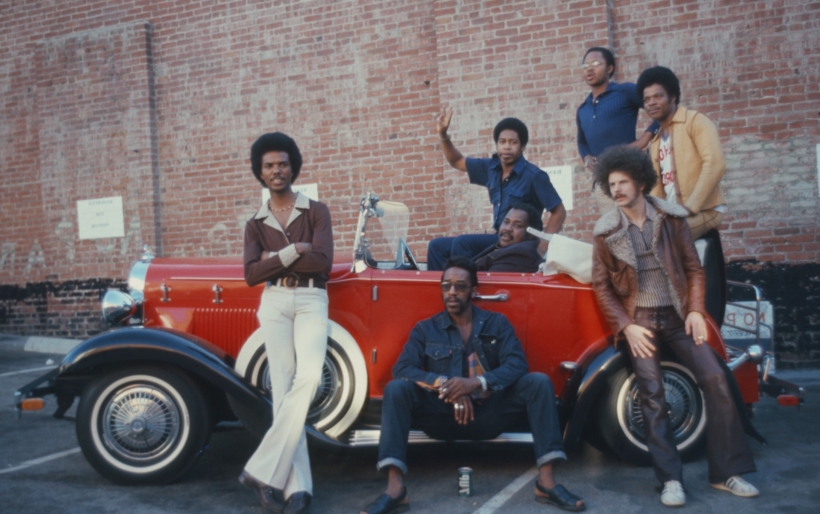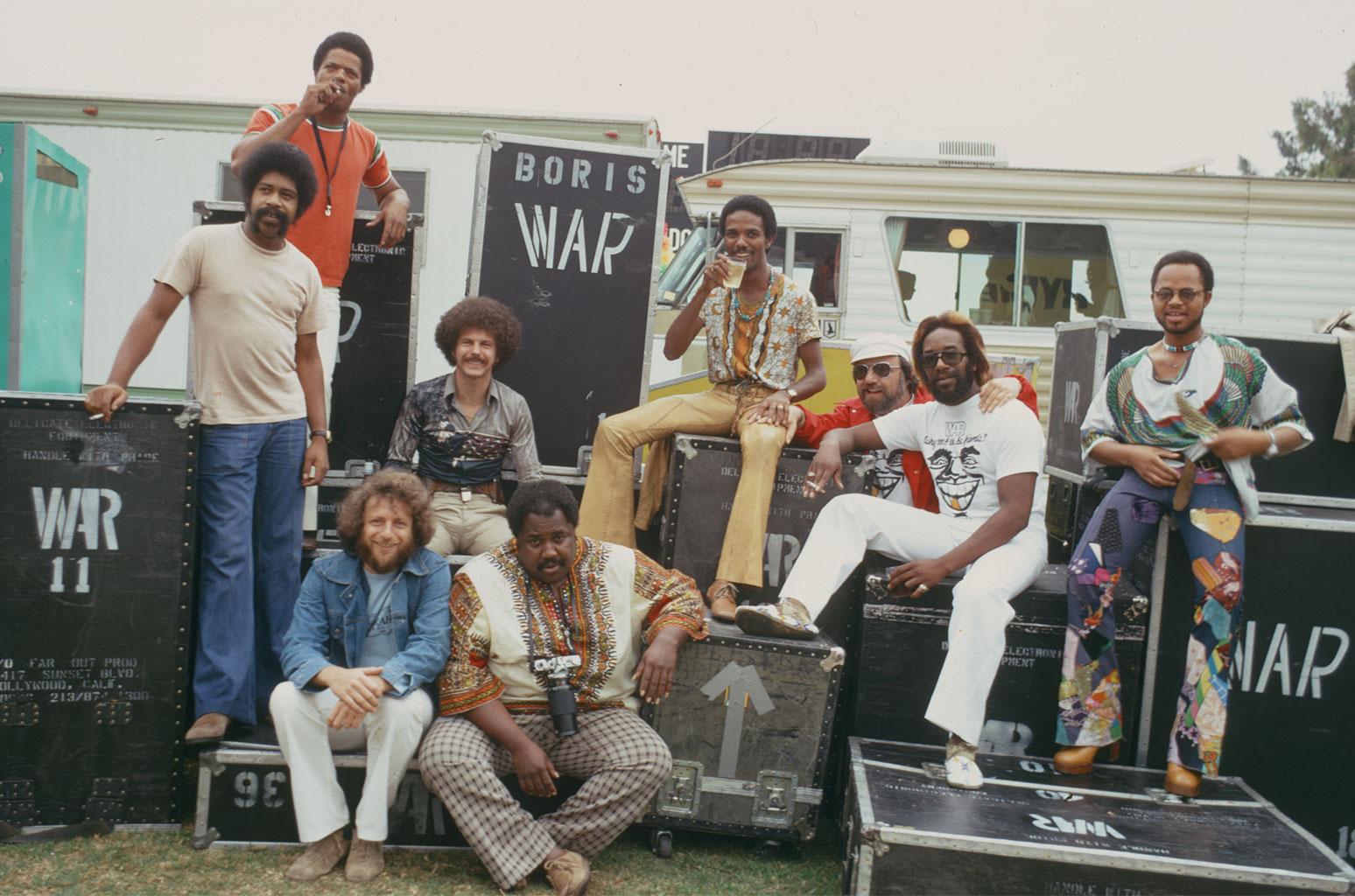A brief history of eclectic 70s greats War
Forged in a rich melting pot of influences, War’s music is a model of innovation through multi-culturalism.

WAR | photo courtesy Far Out Productions
By combining funk, R&B, rock, and Mexican rhythms, the band War created a truly unique musical fusion that defined the ‘70s. Since their debut as the backing band for British rocker Eric Burdon in 1970, War has released enduring classics like “The Cisco Kid,” “Low Rider,” “Spill The Wine,” “Slippin’ Into Darkness,” and “Why Can’t We Be Friends.” While the hits of their ‘70s heyday are now more than half a century old, War remains an active unit and continues to tour around the world – including a headlining appearance at the 2025 XPoNential Music Festival. To get a sense of how War pulled together such a novel and eclectic combination of musical styles, we must first set our sights on the band’s origins in the San Pedro neighborhood of Los Angeles, California.
Drummer and War founder Harold Brown grew up and came of age in San Pedro during the 1940s and ‘50s. Located near the Port of Los Angeles, San Pedro has historically attracted immigrants and travelers from around the world, which has led to its diverse demographic makeup. As a teenager, Harold Brown navigated the area’s diverse music scene, playing at bars, clubs, and cocktail lounges, incorporating Mexican rhythms with the popular R&B sound of the day. In a 2017 Red Bull Music Academy interview with drummer / producer J-Zone, Brown explains how he was introduced to the Mexican sound and how it shaped his playing:
“I got a lot of my rhythms from Tijuana, Mexico, also, because I’d go down there with my mother in the early ’60s. I’d see people dancing in the bars, and those rhythms were where I got a lot of my patterns.”

In the mid-1960s, Brown, keyboardist Lonnie Jordan, and guitarist Howard Scott were gigging and recording under the name The Creators. Alongside the fiery Latin-funk of saxophonist Charles Miller’s band Señor Soul, The Creators were laying the foundation for what War would become. After several lineup changes, various studio sessions, and live gigs, a chance meeting with Eric Burdon of British blues-rockers The Animals would not only lead to a name change, it would change the trajectory of Harold Brown and his crew’s careers.
Working under the name Nightshift and backing NFL defensive end / singer Deacon Jones, Brown and crew met Burdon after a gig in 1969 and joined forces. Manager Steve Gold suggested that the band change its name to War and get to work recording an album with Burdon on lead vocals. The partnership between Burdon and War proved to be natural and prolific. In 1970, the band produced a pair of ambitious and eclectic albums. The Black-Man’s Burdon and Eric Burdon Declares “War” traversed the lines between R&B, psychedelia, funk, jazz, gospel, the blues, and Latin music to create a wholly unique sound. In addition to its experimental approach to sound, Eric Burdon Declares “War” would produce the band’s first hit single, the zany and groovy Latin-funk smash “Spill The Wine.”
By 1971, War ventured out on their own and released their self-titled album. The same year, the band released the now-classic album All Day Music. A tight and layered effort, the album is packed with bangers from the dreamy instrumental “Nappy Head (Theme From Ghetto Man)” to the menacing funk anthem “Slippin’ Into Darkness.” Their next album was the equally strong classic effort, The World Is A Ghetto. By this time, War had established a lean, colorful sound based on B.B. Dickerson’s slick basslines, Harold Brown’s nimble drumming, and Lee Oskar’s catchy harmonica riffs. Following 1973’s Deliver The Word, the band struck gold again with 1975’s Why Can’t We Be Friends? A joyous and complex meeting point between R&B, Funk, Latin rhythms, and beyond, Why Can’t We Be Friends? was a coalescing point of the band’s work and influences up to that point. In addition to being a well-rounded body of work, the album included two of the band’s most enduring hits, “Low Rider” and the title track. While “Why Can’t We Be Friends?” has dominated dancefloors around the world, “Low Rider” remains the crown jewel of the album. With an addictive main riff played by Charles Miller on sax and Lee Oskar on harmonica, “Low Rider” paid homage to the West Coast’s rich Chicano low rider car culture. As addictive as it is creative, the song has endured as part of pop music’s cannon.
Forged in a rich melting pot of influences, War’s music is a model of innovation through multi-culturalism. Listening back to that classic run of War albums in the ‘70s, they still hold up beautifully. With over 50 million records sold, War has left an indelible mark on the way we hear music and experience culture. As one of their few surviving acts of their generation, War continues to bring the sound and rhythm of the West Coast to the world.
War headlines the first night of the XPoNential Music Festival on Friday, September 19th. For tickets and more information, visit XPNfest.org.